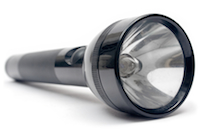 Whether a major weather event has robbed you of your direct line to power over an extended period of time or your expanding operations need to supply their own power source in new remote locations, you might be looking at standby or emergency generators to help you out.
Whether a major weather event has robbed you of your direct line to power over an extended period of time or your expanding operations need to supply their own power source in new remote locations, you might be looking at standby or emergency generators to help you out.
But just how long can you reliably use back-up power generators? And is this even a good idea? If you think of an emergency generator as a much larger and more expensive spare tire, you can get closer to the answer. Emergency generators aren’t designed to serve a primary power source. But by asking a few questions, you can gain a better determination of just how much help they can provide in the short term.
- Will your emergency generators supply enough power?
When you selected your back-up generator, you likely went through an exercise in which you determined the critical systems that needed to be kept up and running. If you’re asking back-up generators to take on the same load as a prime power generator – including supporting multiple systems, additional heavy machinery, etc. – then it’s only a matter of time before they crash and burn. A major reason for this is that because emergency generators are designed to only run in short bursts, they aren’t built with a large cooling system. This can shut down operations and even damage the generators. - Have you kept up maintenance?
Proper upkeep and weekly testing of emergency generators will go a long way in getting them to perform over an extended period of time during an emergency scenario. - Are the generators compliant?
The Environmental Protection Agency (EPA) has a set of stringent standards aimed at reducing the emissions of diesel-fueled power generators. But these only apply to continuous or prime generators. Standby power generators aren’t required to meet EPA emissions standards, so consider the compliance impact of attempting to repurpose your equipment.
At the end of the day, even though emergency generators perform reliably when the primary power source is interrupted, trying to get more out of them than they were designed for will only lead to compromising your operation and the generators, themselves. The best Plan B for replacing prime generators is to purchase new, used or rebuilt equipment designed for primary use.
To check out our growing inventory, click the link below.



